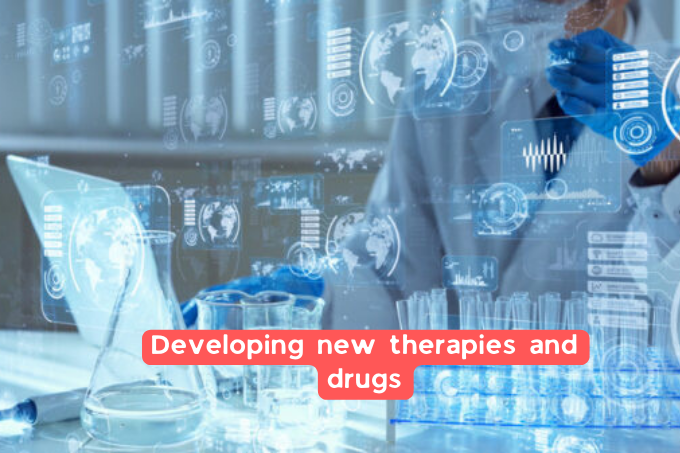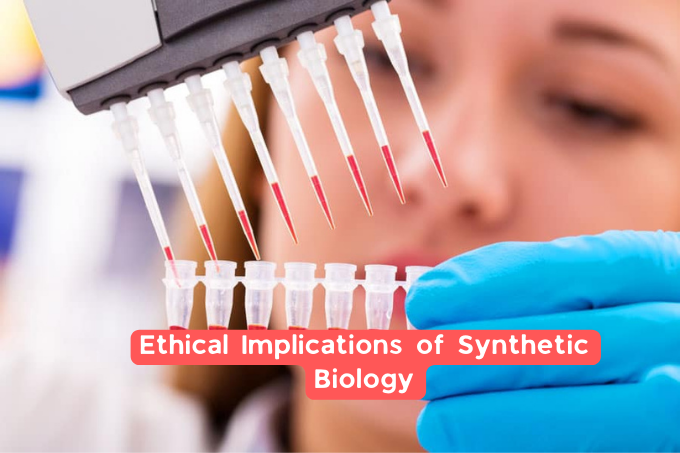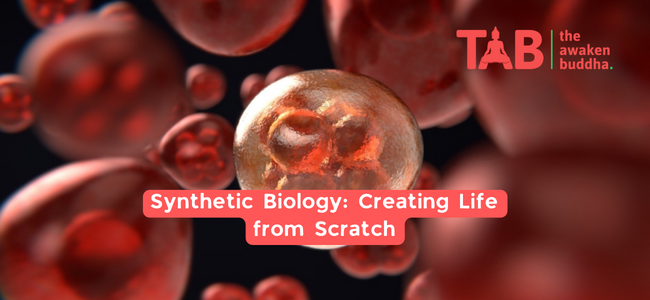In recent years, the field of synthetic biology has made great strides in creating life from scratch by combining the principles of biology, engineering, and computer science. Synthetic biology involves designing and constructing new biological systems, using gene editing, DNA synthesis, and genetic circuits to create living organisms with new functions and properties. This article will explore the field of synthetic biology, its potential applications, and the ethical implications of creating life from scratch.
Introduction to Synthetic Biology
1. What is synthetic biology?
2. The history of synthetic biology
3. Key concepts and techniques in synthetic biology
4. Applications of synthetic biology
What is synthetic biology?
Synthetic biology is an interdisciplinary field that strives to create new biological methods or modify existing ones by applying engineering principles to biology. This field combines knowledge from various disciplines, including biology, engineering, chemistry, physics, and computer science.
The History of synthetic biology
The concept of synthetic biology was first introduced by Stéphane Leduc in the early 20th century, who attempted to create life artificially by combining chemicals. The field was further developed in the 1950s when Watson and Crick invented the structure of DNA. In recent years, new tools and techniques, such as CRISPR gene editing and DNA synthesis, have allowed scientists to create more complex biological systems.
Key Concepts and Techniques in synthetic biology
1. DNA synthesis and editing
2. Genetic circuits and systems
3. Metabolic engineering
4. Synthetic cells and organisms
Applications of synthetic biology
1. Biomedical applications
2. Environmental applications
3. Industrial applications
The Potential of Synthetic Biology
1. Developing new therapies and drugs
2. Creating sustainable energy sources
3. Producing food and materials more efficiently
Developing new therapies and drugs

One of the most promising applications of synthetic biology is the development of new therapies and drugs. Researchers use synthetic biology to create new treatments for various ailments, including cancer, genetic disorders, and infectious diseases. For example, scientists use CRISPR gene editing to develop new analyses for sickle cell anemia, a genetic disorder affecting millions worldwide.
Creating sustainable energy sources
Another potential application of synthetic biology is the creation of sustainable energy sources. Scientists are using synthetic biology to develop new biofuels that can replace fossil fuels, significantly contributing to climate change. Synthetic biology can also create new methods for storing and transporting energy.
Producing food and materials more efficiently
Synthetic biology can also be used to produce food and materials more efficiently. Researchers are using synthetic biology to develop new methods for producing more sustainable and environmentally friendly meat, dairy, and plant-based products. Synthetic biology can also be recycled to create new materials, such as bio-based plastics and textiles, that are biodegradable and non-toxic.
Ethical Implications of Synthetic Biology

1. Safety concerns
2. Biosecurity concerns
3. Social and ethical issues
Safety concerns
One of the main ethical businesses surrounding synthetic biology is safety. Creating new biological systems can be unpredictable, and there is a risk that synthetic organisms could escape from the lab and cause harm to the environment or human health. There is also a risk that synthetic organisms could be used as bioweapons.
Biosecurity concerns
Another concern is biosecurity. Synthetic biology could create new pathogens or modify existing ones to make them more virulent or resistant to treatment. This could have severe consequences for global health and security.
Social and ethical issues
Synthetic biology raises several social and ethical issues, including questions about the ownership of synthetic organisms and the potential impact on biodiversity.
Conclusion
Synthetic biology can revolutionize our lives and work, from creating new therapies and sustainable energy sources to producing more efficient food and materials. However, it also raises significant ethical concerns that must be carefully considered and addressed. As synthetic biology advances, ensuring its benefits are shared equitably and its risks mitigated will be essential.
FAQs
1. Is synthetic biology the same as genetic engineering?
Synthetic biology and genetic engineering both involve the manipulation of DNA, but synthetic biology takes a broader approach by applying engineering principles to biology.
2. What are some examples of synthetic biology applications?
Examples of synthetic biology applications include developing new therapies and drugs, creating sustainable energy sources, and producing food and materials more efficiently.
3. What are the potential risks of synthetic biology?
Synthetic biology’s potential risks include safety, biosecurity, and social and ethical issues.
4. What are some of the ethical sales surrounding synthetic biology?
Ethical concerns surrounding synthetic biology include safety, biosecurity, and social and ethical issues such as ownership of synthetic organisms and potential impacts on biodiversity.
5. How can we provide that the benefits of synthetic biology are shared equitably?
To ensure that the benefits of synthetic biology are shared equitably, it will be important to promote access to research and technology, particularly in developing countries, and to address any potential negative impacts on society and the environment.










